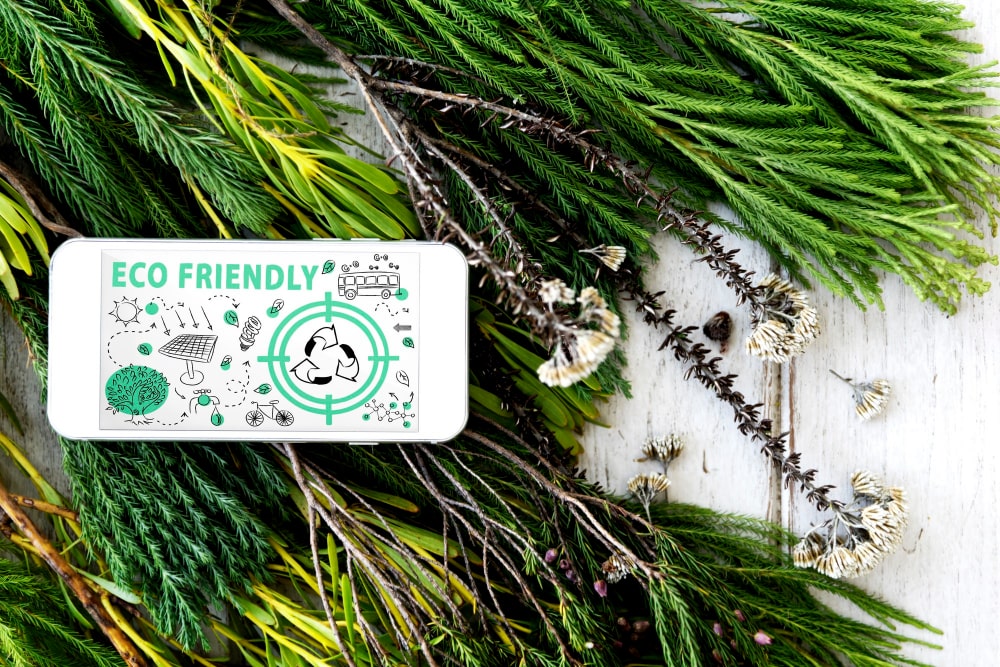
The materials and items we use add up quickly and even faster for businesses. Especially if you have multiple office locations, the cost of “waste” — whether through office supplies, kitchen utensils, or even furniture and other items — can be a serious part of your environmental footprint and your budget.
Here are a few ways you can cut down on waste to help both the planet and your business’s bottom line.
Go Paperless
Going paperless is not just a recent fad. It’s an important part of reducing waste across the planet. Paper waste makes up 26% of the waste at landfills. American businesses, in particular, use roughly 21 million tons of paper. If even a third of that ends up in landfills, that’s a pretty serious impact.
Especially with the way banks, software companies, and other businesses provide paperless billing and contracts, and it’s relatively easy for your business to go paperless. But what about the notebooks and other paper-based office supplies you provide for your employees? That’s a lot of paper waste, too.
Consider providing a tablet or an eco-friendly planner for your employees that can be infinitely reused.
Provide Valuable, Reusable Materials for Employees
Businesses provide a lot of items and materials for their employees and offices. It’s not just about paper or other materials to do the job; think about any swag or company-branded goodies you decide to provide to new hires and employees.
A lot of those items are considered to be relatively useless or even single-use. Items like paper notebooks, pens and pencils, sticky notes, stickers, and even tote bags are nice at first, but many of these items may go unused, especially if someone already has dozens of those items from other companies or in-person work conferences. Consider providing unique, valuable items that employees might not have purchased for themselves — reusable stainless steel water bottles, branded food or drink items like coffee beans, and noise-canceling headphones are all solid eco-friendly choices.
Ditch All Plastic and Single-Use Products
This is especially important for any kitchen items or refreshments at events. Plastic, single-use products like water bottles, cups, plastic forks and knives, and plastic or paper plates can add up quickly. They’re expensive when you consider how often they need to be purchased; though it feels like more expense in the short term, buying reusable kitchenware — plates, cutlery, glasses, and cups — will save both waste and unnecessary expense in the long term.
Recycle Everything You Can
If some items cannot be reused, reduced, or even eliminated entirely, recycle everything you can. Depending on your business’ location, certain items like glass or paper may or may not be recyclable, so be sure to check local laws and limitations before making a recycling run. Some items may be able to be included in regular waste management and pickup, while others may require a special trip.
Some of the items you can recycle in the United States include plastics, metals, glass, paper, cardboard, electronics, rubber, and wood.
Perform a Waste Audit
One of the best ways to find out what you should recycle, reuse, or just eliminate in the first place is by performing a waste audit on your offices and the business as a whole. Find the answers to these questions before taking any decisive action:
- What single-use items do you regularly have to stock up on?
- What single-use items are easier and/or cheaper to replace with multi-use items?
- How do you currently dispose of waste? How would you prefer to?
- How much money are you spending each year on single-use materials, plastics, and other items you constantly replace?
Educate and Train Employees
When in doubt, train employees and what, when, and how to recycle. This is especially important if your business is located in an area with specific and possibly limiting recycling rules.
If your business has specific waste goals and plans, make sure to share them with the entire business. What will reducing or eliminating waste do for the business? How will these actions help the employees or the larger community? Sharing as much information as possible will bring employees on board with the initiative and help them feel tied to a greater cause.
Donate Any Items You No Longer Use or Need
When all else fails, don’t throw any items away that could live a second life somewhere else. Donate any leftover food, additional kitchen items, or unwanted office supplies — including furniture like chairs, desks, and tables — to local charities, national food banks, or donation centers.
If you’re not sure whether or not any charities will take certain items, you can call in before making the trip. Though taking these steps does require more time and effort, it’s much better for the environment to donate and let someone else reuse something than it is to throw it in the dumpster.
Take Action
After you’ve performed a waste audit, it’s now time to take action! Start out with small efforts and slowly, over time, make strides with more impactful choices that will ultimately make your business or office a more conscious and eco-friendly environment!
You may also like
How to Help Your Business Become More Sustainable?
7 Tips for Making Your Business More Energy-Efficient
Top 7 Eco-Friendly Packaging Alternatives for Your Business
Sustainable Packaging: Why It Matters For Your Business
